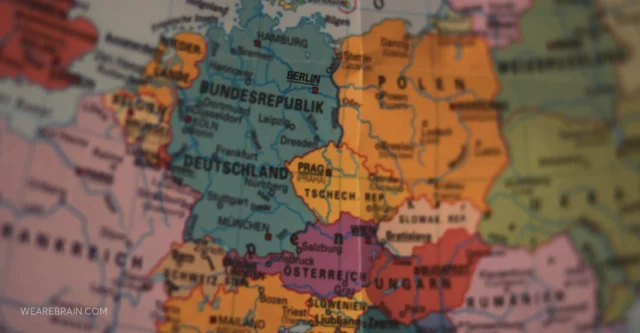
European tech momentum is strong with major recent deals:
- Bending Spoons acquired Vimeo for $1.38B
- Proxima Fusion raised €130M (Europe’s largest fusion round)
- €19B total raised by European startups in H1 2025
The challenge: Scaling across 27 different EU legal systems remains complex and costly.
Potential solution: EU-INC framework could streamline cross-border operations, though political barriers exist.
Bottom line: Despite regulatory fragmentation, European startups show strong momentum with growing investor confidence.
European tech is having a moment.
From Mistral AI’s €1.7 billion funding round to Italian unicorn Bending Spoons acquiring Vimeo for $1.38 billion, European tech startup funding news shows impressive momentum. But behind the headlines, founders still wrestle with 27 different legal systems to scale across Europe.
Here’s what’s driving today’s ecosystem success and why regulatory harmonisation could unlock even greater potential.
Record deals signal ecosystem strength
AI momentum continues
Mistral AI’s €1.7 billion funding round remains the headline-grabbing deal, but it’s part of a broader AI investment wave. The Paris-based company’s success demonstrates that latest startup deals Europe 2025 can compete directly with Silicon Valley counterparts in critical technology sectors.
ElevenLabs, Mistral, and other European AI leaders are building Europe’s position in the global AI race, attracting significant international investment and talent.
Italian unicorn makes bold moves
Italian tech unicorn Bending Spoons acquired Vimeo for $1.38 billion in an all-cash deal announced just days ago. Milan-based Bending Spoons, known for acquiring brands like Evernote and WeTransfer, continues its aggressive acquisition strategy with this landmark transaction.
The deal represents the largest acquisition in Bending Spoons’ history and highlights European companies’ growing financial capacity to compete for major international assets. Shareholders will receive $7.85 per share, representing a 91% premium over Vimeo’s recent trading price.
Fusion energy breakthrough
German startup Proxima Fusion raised €130 million in Europe’s largest private fusion investment round. The Series A, co-led by Cherry Ventures and Balderton Capital, brings the Munich-based company’s total funding to over €185 million.
This funding surge reflects growing investor confidence in European deep tech capabilities. Recent funding rounds for EU tech increasingly focus on climate solutions and energy independence, themes that resonate strongly with both investors and policymakers.
Broader funding trends across sectors
Defence tech surge
European defence tech continues attracting record investment. Companies like Helsing are securing substantial funding as geopolitical factors drive innovation in security technologies. Latest startup deals in Europe for 2025 show defence tech emerging as a major category, with startups benefiting from increased government support and strategic investor interest.
Deep tech diversity
The first half of 2025 saw European startups raise €19 billion across diverse sectors. Beyond AI and defence, significant investment flowed into:
- Climate tech and sustainability solutions
- Robotics (up nearly €200 million compared to 2024)
- Biotech and healthcare innovation
- B2B enterprise software platforms
Companies like Neko Health (€250 million), Verdiva Bio (€348 million), and Quantum Systems (€149 million) represent the breadth of European innovation attracting substantial funding.
Geographic distribution
While London maintains its lead despite Brexit, Berlin, Paris, and Stockholm continue growing their ecosystems. Amsterdam, Dublin, and Barcelona are emerging as significant hubs, with increasing cross-border deal flow suggesting greater European integration.
Cross-border scaling remains complex
Legal challenges for tech founders in Europe
Despite funding success, how European startups scale cross-border remains complicated by structural barriers. Founders face 27 different company law systems, each with varying incorporation requirements and governance structures.
Employment law complexity particularly affects high-growth companies. Different social security frameworks, work permit requirements, and termination procedures create friction when building pan-European teams.
Investment documentation issues
EU startup regulation & investment documents vary significantly across jurisdictions. Standard term sheets differ between countries, legal review costs multiply across borders, and due diligence becomes increasingly complex for cross-border transactions.
EU-wide stock options startups face particularly challenging obstacles. Twenty-seven different tax treatments, varying vesting rules, and limited portability restrict employee mobility and complicate compensation strategies.
Pan-European startup ecosystem trends
Cross-border deal flow is increasing despite regulatory fragmentation. Investors are becoming more comfortable with European expansion strategies, though administrative costs remain higher than necessary.
Companies like Solaris (€140 million Series G) and Zepz (€140 million funding) demonstrate successful pan-European scaling, but their success often comes despite rather than because of regulatory frameworks.
EU-INC proposal: Potential framework changes
The proposed EU-INC framework could address some structural challenges through harmonisation efforts.
Key proposed changes
EU-INC would introduce standardised incorporation processes across member states with common governance requirements. A centralised registry system could streamline reporting and reduce administrative burden.
Most importantly for startups, the framework could standardise investment infrastructure with common document templates and harmonised due diligence processes.
Employment and equity improvements
Unified employment frameworks could simplify hiring across EU member states. Stock option standardisation would enable portable vesting schedules and simplified tax treatment for employee equity.
Implementation challenges
National sovereignty concerns and legal system differences create significant barriers. Member states want to protect tax revenue and regulatory autonomy, while legal system integration remains complex.
Industry adoption would require substantial change management across stakeholders, investors, and legal professionals.
Strategic implications moving forward
For startup founders
Monitor EU-INC development while optimising current cross-border structures. Strategic planning for potential framework adoption should begin now, including investor discussions and preparation for changing regulatory landscapes.
Consider how regulatory changes might affect expansion strategies, talent acquisition plans, and investment structures.
For investors
European portfolio concentration opportunities may increase with better harmonisation. Cross-border deal structuring could become more efficient, while due diligence processes might streamline significantly.
Looking ahead
European tech startup funding news demonstrates remarkable ecosystem strength. Record deals across sectors from AI to fusion energy show Europe’s growing technology leadership.
Yet structural barriers persist. Whether through EU-INC or alternative approaches, addressing regulatory fragmentation could unlock significant additional growth potential.
The current momentum provides an opportunity for meaningful change. With strong investor confidence, policy support, and operational success stories, European startups are well-positioned to benefit from any regulatory improvements.
For founders expanding across European markets today, understanding these dynamics is crucial. The regulatory landscape will continue evolving, and strategic positioning now could provide competitive advantages as frameworks mature.
Ready to navigate European expansion challenges? We help startups develop strategic market entry plans that account for current regulatory complexities and upcoming framework changes.
